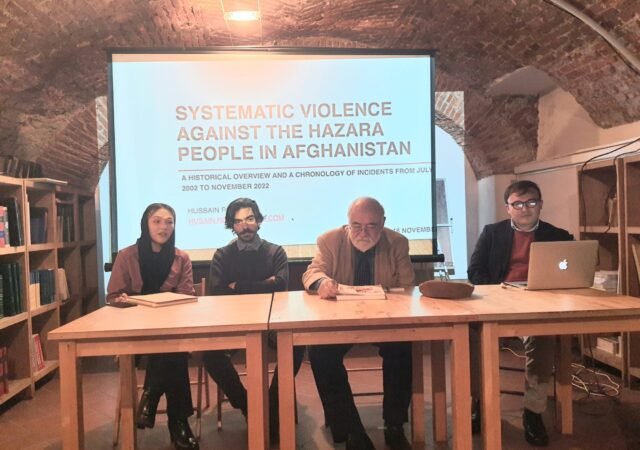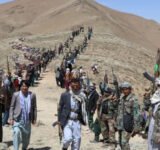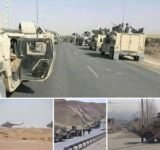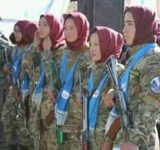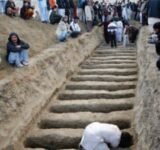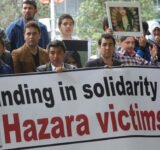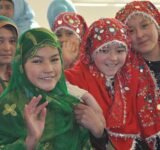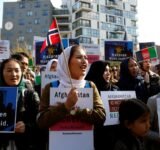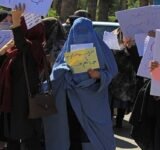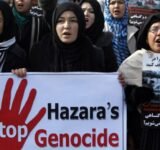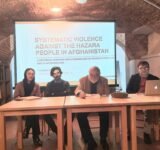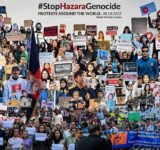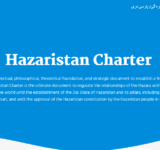Mirza*, 35
For decades, Hazaras faced laws and rules that dictated their livelihoods. For Mirza*, he knew this struggle too well. “We couldn’t get an education, couldn’t get a better life,” he says. Mirza grew up in Pakistan, but in 2001 moved back to Afghanistan when his family thought it was safe. Like many Hazaras, he had been hopeful for a new era of peace and security. However, he quickly realized that systemic oppression continued in the form of legal and institutional discrimination. Mirza witnessed countless attempts to oppress Hazaras in Afghanistan, from blocking access to education and electricity to targeted killings.
When Mirza began working within a government institution, he realized the scope of what Hazaras were facing. A corrupted group within the organization coerced him to cut electricity and divert resources from Hazara communities. Pressure continued increasing on Mirza to hurt his own people. After a threat was made to his safety, he made the difficult choice to leave Afghanistan.
“Being Hazara and being in Canada is being a free person,” Mirza says, adding that he worries for his family back home. “There will always be problems for Hazaras. They have only two options: live in difficulty or leave.”
*Names changed for protective reasons
Source:UNHCR


